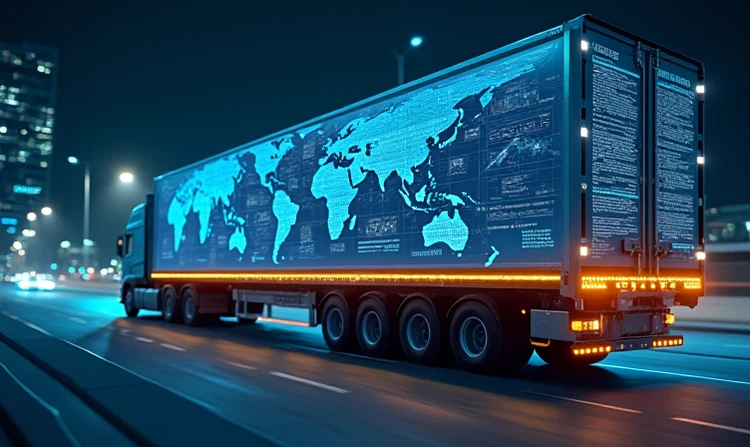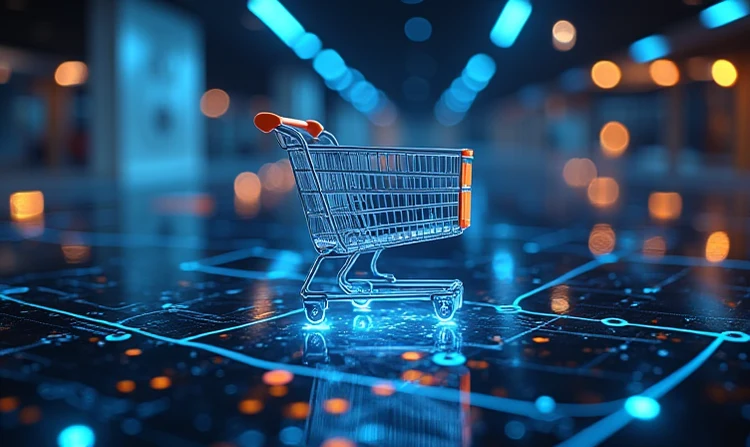🤖 Artificial intelligence in e-commerce: automation and personalization 🛍️
Artificial intelligence (AI) is revolutionizing the e-commerce industry, offering new ways to automate and optimize. From personalized recommendations to improved logistics, AI is becoming an integral part of e-commerce.
🛒 AI in Customer Experience Personalization
One of the key applications of AI in e-commerce is personalization:
- Recommender systems. AI analyzes the preferences and behavior of buyers, offering them products that may interest them.
- Chatbots: Automated assistants that help customers navigate the site and answer questions.
🔄 Automation of Processes in E-commerce
AI plays a key role in automating many aspects of e-commerce:
- Inventory management: AI algorithms help predict demand and optimize inventory levels.
- Logistics and Delivery: Using AI to plan delivery routes and manage logistics operations.
A selection of AI-recommended products can be found here, allowing consumers to take advantage of innovations in e-commerce.
📊 The Impact of AI on E-commerce
Continuing with the theme of the impact of artificial intelligence on e-commerce, let's delve deeper into understanding how AI is transforming the market and what opportunities it opens up for businesses and consumers.
📈 AI in Marketing and Analytics E-commerce
AI significantly improves the effectiveness of e-commerce marketing strategies:
- Targeted Marketing: AI algorithms analyze big data to create personalized marketing campaigns.
- Customer behavior analytics: AI helps you understand customer preferences and habits, improving your offerings and service.
🚀 Improving Customer Service
AI is helping to significantly improve customer service in e-commerce:
- Virtual assistants and chatbots. They provide fast and accurate responses to customer queries, improving their online store experience.
- Automate after-sales service. AI can help process returns and exchanges, reducing wait times and improving customer satisfaction.
🌐 Benefits of AI for Small and Medium Business
AI provides small and medium businesses with new opportunities to compete in the market:
- Accessibility of tools: Many AI-based solutions are becoming more accessible to small businesses, allowing them to compete with large players.
- Improved analytics: AI gives businesses deep insights into the market and consumer behavior, helping them make informed decisions.
Continuing our analysis of the impact of artificial intelligence on e-commerce, let's look at the future of this technology in the industry and how it can transform the way we do business in the digital era.
🌟 Future AI Trends in E-commerce
The development of AI promises to bring a number of innovations in the field of e-commerce:
- Automated data analysis: More advanced AI algorithms will provide a deeper understanding of consumer trends and behavior.
- Increased personalization: AI will be able to provide even more accurate product and service recommendations based on sophisticated data analysis.
🚀 AI and Innovations in E-commerce Logistics
AI also plays a key role in optimizing logistics processes:
- Automated delivery planning. AI algorithms help optimize routes and manage inventory.
- Smart warehouses: Using robotics and automation to improve efficiency and reduce order processing times.
📈 Benefits of AI for Growth and Competitiveness
The use of AI in e-commerce contributes to the growth and improvement of the competitiveness of companies:
- Cost optimization: Automation and improved data analysis help reduce operating costs.
- Increased sales. Personalized approach and improved customer experience directly impact increased sales and customer retention.
In conclusion of our review of the role of artificial intelligence in e-commerce, we will summarize and assess what prospects this technology opens up for the future of online trading.
💡 Results: Artificial Intelligence as a Driver of E-commerce
Artificial intelligence is transforming the e-commerce industry, offering new opportunities for business and improving the customer experience:
- Personalization and improvement of customer service. AI provides an individual approach to each client, increasing satisfaction and loyalty.
- Efficient logistics and inventory management. Automation and optimization of processes using AI reduces costs and increases efficiency.
🚀 The Future of E-Commerce with AI
Advances in artificial intelligence promise further innovation in e-commerce:
- Expanding AI functionality. Implementing more complex algorithms for in-depth analysis and automation.
- Integration with other technologies. Combining AI with blockchain, IoT and augmented reality technologies to create new trading platforms.
🌐 The Impact of AI on Global E-commerce Trends
AI is not only changing current practices in e-commerce, but is also shaping global trends:
- Accessibility and scalability: Small and medium-sized businesses gain access to advanced AI technologies, increasing their competitiveness.
- Sustainability and social responsibility: AI helps companies optimize processes in ways that minimize environmental damage and increase social responsibility.
💎 Conclusion
Artificial intelligence is a key element in the future development of e-commerce, offering solutions for automation, personalization and optimization of business processes. This technology not only increases efficiency and customer satisfaction, but also opens up new horizons for innovation in online commerce.


